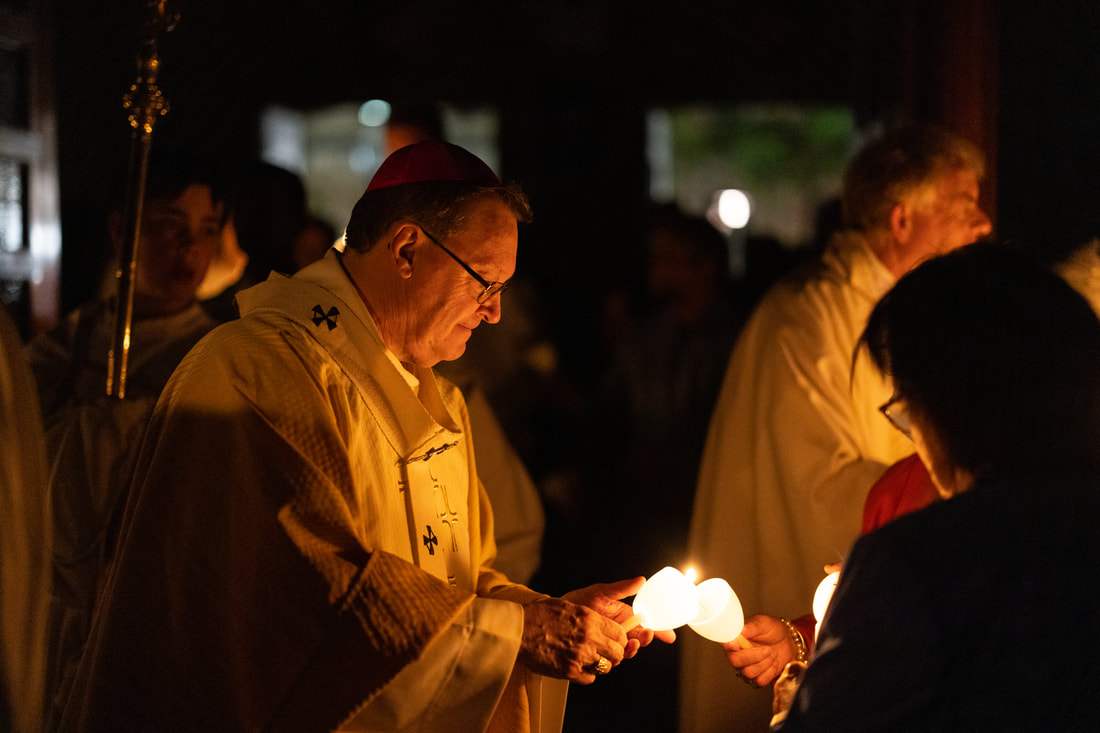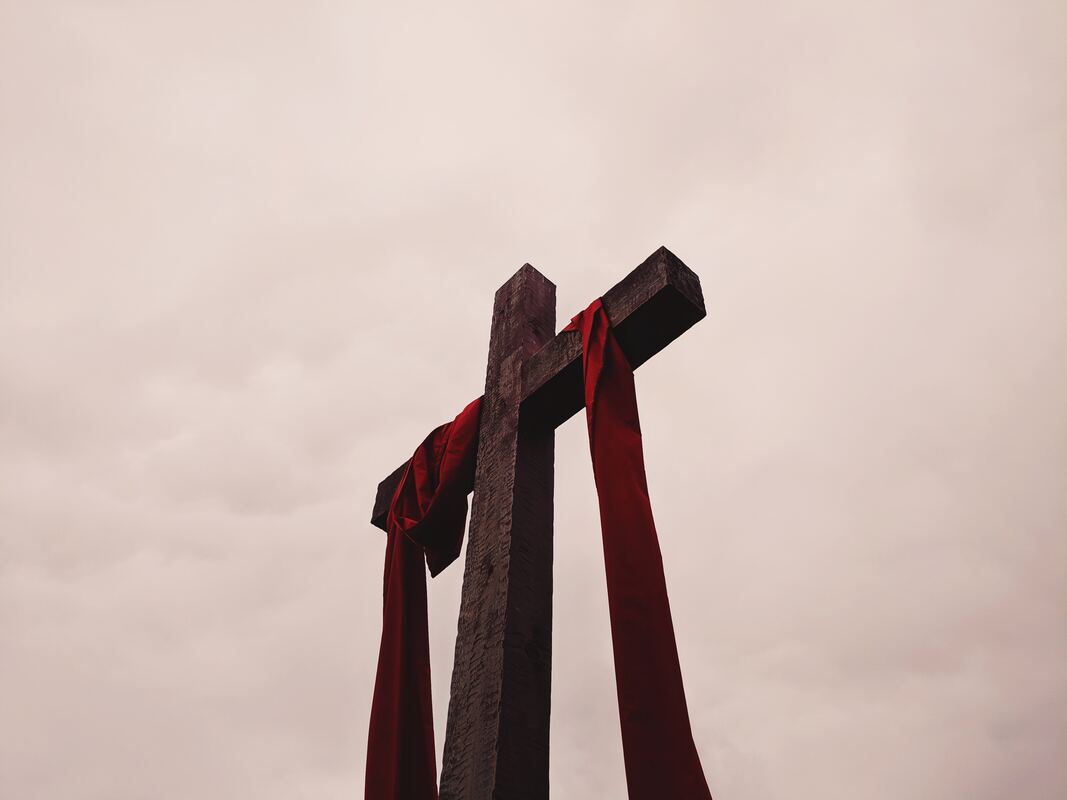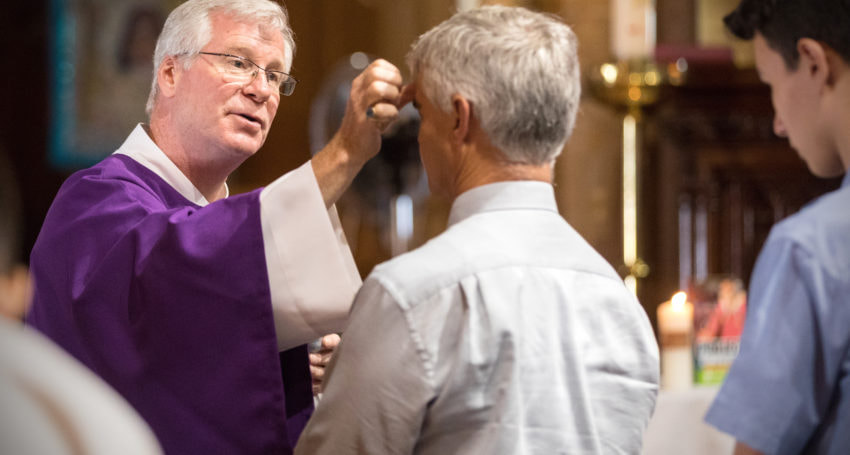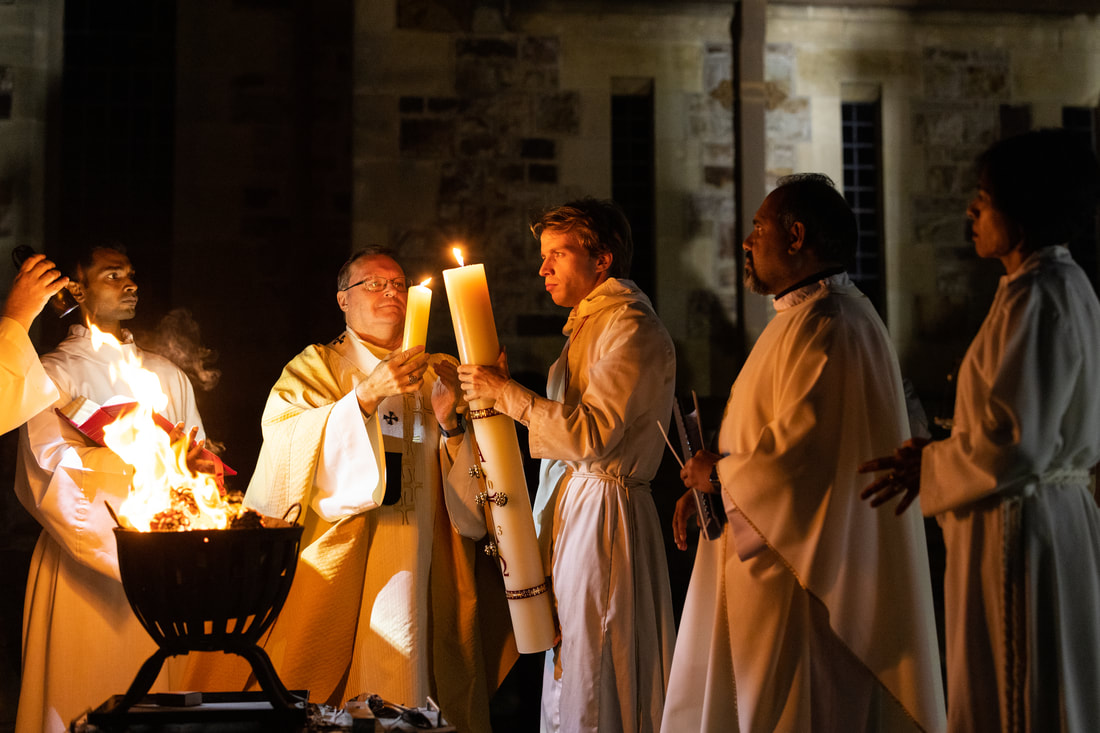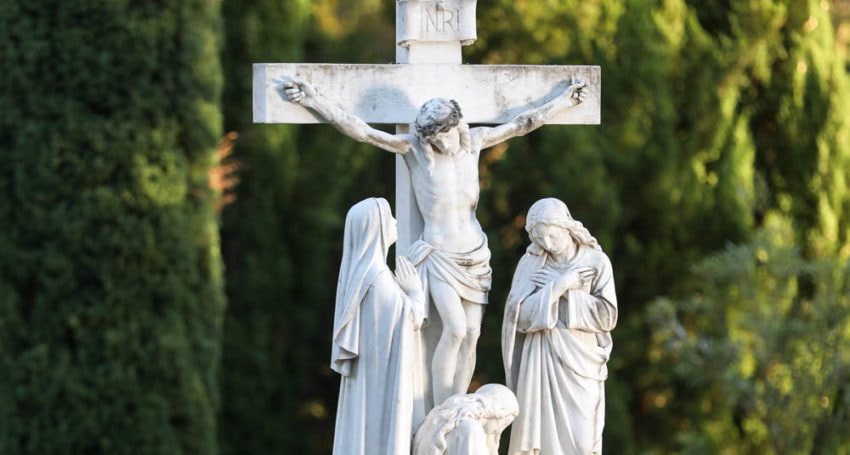|
By Kathy Horan The season of Easter that we have been experiencing for several weeks is known in Rite of Christian Initiation (RCIA) terms as a time of Mystagogy – a time for post-baptismal catechesis.This is a time for both the local parish community and the ‘neophytes’, or new Catholics, to engage together in savouring the wonders and mysteries of our faith and deepening our understanding of what it means to be followers of Jesus in our world today.
It is a time for appreciating a renewal of our faith and hope, and our love for the risen Lord. Throughout this season of Easter, our gospels call us to reflect again on images taken from daily life that impress on us the nature of what it means to be identified with Christ. Some of the images used are the vine and branches, the good Shepherd who knows the sheep, Jesus as the way, the truth and the life, and Jesus who is the bread of life, broken and given for us.
0 Comments
By Lauren Bierer One Easter, not long after moving to Australia from the United States, my husband and I made a big mistake. We bought our children bikes so that they could play outside but they took it as a sign that Easter was a time for receiving gifts. Every Easter since they have provided us with a wish list and we find ourselves in an unwanted battle.
As church musicians, my husband and I have never used the Easter long weekend as a time for vacation as these days are the most important in the liturgical year and the busiest weekend for musicians. The sacred triduum is a three-day liturgy that begins at dusk on Holy Thursday and ends at dusk on Easter Sunday. Our children have experienced a few Holy Thursday Masses and remember the story of the Last Supper and the ritual of the foot washing. They have seen the altar stripped and flowers removed in preparation for the starkest liturgy in our Church calendar. By Dr. Jenny O'Brien The season of Lent extends from Ash Wednesday until the Mass of the Lord’s Supper on Holy Thursday evening, when the Easter Triduum begins. During this period neither the Gloria nor the Alleluia are sung, and a different Collect (Opening Prayer) is provided for every day, to emphasise the importance of these weeks.
But have you ever wondered where the practice of having our foreheads signed with ashes originated? The Old Testament tells us that those doing penance would dress in sack-cloth and put ashes on their heads as a sign of their repentance and we know that this practice continued with the early Christians. You may not know, however, that penance in the weeks leading up to Easter was linked to preparation for baptism of adults which, in the Early Church, often took place at Easter. Quite early in the piece it became customary for all Christians to support those preparing for baptism by sharing with them in prayer, fasting and almsgiving, and taking time to reflect on what their own baptism meant to them. An 8th century sacramentary contains a ritual for the ‘Day of Ashes’ so we know that this way of marking the beginning of Lent is at least 13 centuries old! By Dr. Jenny O'Brien Easter is almost upon us. On April 14 we begin the Easter Triduum (pronounced trid-you-oom), the most important three days in the Church’s year, when we celebrate the mystery of Christ’s passion, death and resurrection. It is as if the three days are stitched together into a single ‘great’ liturgy as we journey with Jesus from the Last Supper in the upper room, to the cross on Calvary, to the mystery and joy of resurrection. What begins with the Entrance Procession on Holy Thursday night continues seamlessly through Good Friday, the Easter Vigil, Easter Sunday morning and only ends with Evening Prayer late on Easter Day. By Kathy Horan We recently celebrated the feast of Pentecost, 50 days after the Easter celebration of the Resurrection.
During those 50 days, our liturgies and experiences of the richness of the word of God have been more than food for thought. We have been challenged by the word of God, reminded of all that Jesus said and did while he was with his disciples. We have been comforted by Jesus’ words and we have pondered on what all of this might mean for us, followers of Jesus for today’s world. In one sense, it is easy to be caught up in the euphoria of being known as disciples of Jesus, knowing that in his resurrection to new life Jesus overcame suffering and death, and promised that his followers would also share in the experience of life to the full, in so far as they remained close to him and focused on his message. By Dr. Jenny O'Brien In an address from St Peter’s Square on Easter Monday, 2019, Pope Francis named the resurrection of Christ as “the most shocking event in human history” – shocking, because it should not have been possible. Those who die do not return to life, and yet this was the reality that faced the women at the tomb. They had come to anoint Christ’s body only to find the tomb empty and be told by an angel, “Do not be afraid. He is not here, for he has risen.” (Mt 28:5-6). Fear turned to joy and the women ran to tell the other disciples. And this is the message that has been passed down to us from the very beginning of Christianity: because Jesus has been raised from the dead, we too have the promise of resurrection. At the very heart of all our hope is Christ’s death and resurrection.
Author: Kathy Horan During our current extraordinary time of social distancing, health consciousness and concerns, and attempting to deal with many unknowns related to the present health pandemic, our most significant celebration of Easter has taken place.
Under normal circumstances, we would have celebrated together the ceremonies of the triduum, welcomed our RCIA candidates and renewed our own commitment in faith to the risen Lord. Those sacred days – Palm Sunday, Holy Thursday, Good Friday and Easter Sunday – have still been observed and we have participated, but differently, from our own homes. Author: Dr Jenny O'Brien Hot cross buns and chocolate eggs are enjoyed by many over the Easter period, but not everyone understands their true significance. Behind those simple ‘treats’ stand the most profound events of human history. The cross on the yeast buns represents the crucifixion when Jesus, the Son of God died out of love for us. The egg represents the resurrection, when Jesus was raised to new life and lives for ever as the resurrected Christ. On Easter morning we hear the proclamation, “Christ is risen!” and our response is, “He is risen indeed, Alleluia!”
|
|
Catholic Archdiocese of Adelaide
|
